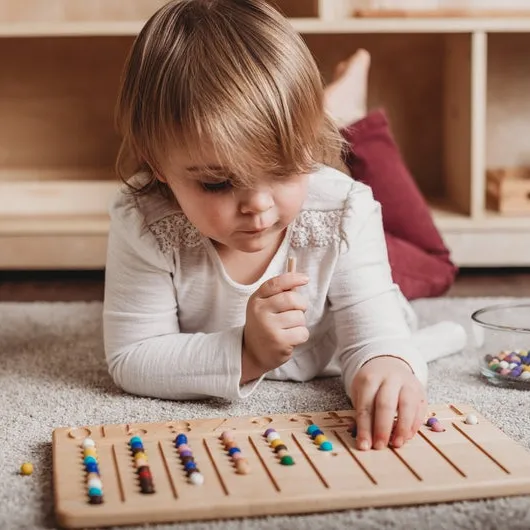Building Blocks of Development Montessori Toys for Infants
Montessori toys for infants serve as foundational building blocks for development, nurturing key skills and fostering curiosity from the earliest stages of life. These toys are carefully designed to align with the principles of Maria Montessori, a pioneer in child development who emphasized the importance of independence, exploration, and hands-on learning. Let’s delve into the essential building blocks these toys provide for infants’ growth and development.
Sensory Exploration
Montessori toys for infants are rich in sensory experiences, engaging their senses of touch, sight, sound, and sometimes even taste and smell. Textured balls, soft fabric books, and rattles with various shapes and materials stimulate infants’ senses, encouraging them to explore and understand the world around them. Through these sensory experiences, infants develop their cognitive abilities, fine motor skills, and sensory processing capabilities.

Fine Motor Development
Toys like wooden blocks, nesting cups, and shape sorters are integral to developing infants’ fine motor skills. These toys encourage grasping, holding, manipulating, and coordinating movements, helping infants strengthen their hand muscles and hand-eye coordination. As they grasp and manipulate objects, they also enhance their understanding of cause and effect, learning how their actions can influence the world.
Language and Communication
Montessori toys facilitate language development by introducing infants to different sounds, words, and concepts. Books with simple pictures and textures, and toys with buttons that produce sounds or music, encourage infants to engage with language early on. Parents and caregivers can also use these toys as tools for interactive play and communication, fostering language skills and building a foundation for future literacy.
Cognitive Skills
Montessori toys promote cognitive development by encouraging problem-solving, critical thinking, and logical reasoning. Toys like stacking rings, shape puzzles, and nesting dolls present challenges that infants can gradually master through exploration and experimentation. These toys not only enhance cognitive skills but also cultivate a sense of accomplishment and self-confidence as infants successfully solve problems and achieve goals.
Social and Emotional Development
Even in the early months of life, social and emotional development is nurtured through Montessori toys. Toys such as plush animals, dolls, and simple board games encourage pretend play, empathy, and social interaction. Infants learn to express emotions, share experiences, and develop relationships with others, laying the groundwork for healthy social development later on.
Independence and Self-Discovery
Montessori toys empower infants to explore and learn independently, promoting a sense of autonomy and self-discovery. Open-ended toys like wooden blocks, sensory bins, and stacking toys allow infants to create, experiment, and discover at their own pace. This independence fosters a love for learning and encourages a growth mindset, montessori infant toys shaping lifelong attitudes towards education and exploration. Montessori toys for infants are much more than just playthings—they are the building blocks of development, nurturing essential skills and abilities that form the foundation for lifelong learning and growth.
